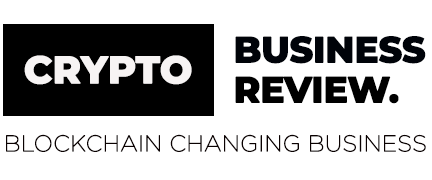Just as there were challenges to replacing carrier pigeons with telegrams, there are obstacles to blockchain adoption in schools and universities. These are the challenges that industry insiders say hinder widespread adoption of blockchain in the education sector:
1. Miguel Caballero, CEO of Tutellus
“We need DApps with enough simplicity in the front end and strength in the back end to solve real user problems. Blockchain DApps shouldn’t be focused on the crypto community, we need to reach the mainstream with simple and effective solutions.”
2. Danielius Stasiulis, Co-founder of BitDegree
“The massive benefit that blockchain can bring will not benefit the existing players that much, therefore the existing players are not interested in blockchain much beyond credentials. There will be a rise of new education players, especially in the online education realm, who will bite into the establishment’s market share.”
3. Chris Jagers, CEO of Learning Machine
“The need for absolute control. Most schools have built up layers of historical practices to protect the integrity of records, and the idea of trusting a public infrastructure for verification is a difficult shift for many to internalize. This technology is much like the World Wide Web, in that public blockchains are global public networks not controlled by schools or companies, and yet they are transforming how people share important information.”
4. Richard Maaghul, Founder and CEO of ODEM
“The biggest challenge that blockchain adoption faces is an understanding of how the technology functions; what the opportunities and limitations are. The technology is still being developed to improve scalability and privacy. These are two critical pieces that determine the use cases of the technology, and the scale to which use cases can be rolled out.”
5. Steven R. Gordon, Prof. of Information Technology Management, Babson College
“The number one challenge is the development of robust applications backed by trusted companies. No institution wants to adopt an application supported by a company or organization that will go out of business in a year or two. It will take time for these applications and their companies to develop and mature.”
6. Dr. Jennifer Jones Educational Entrepreneur and Founder of Green Ivy Schools
“Trust and generational shift. Digital natives will see blockchain systems as natural, intuitive and in sync with the public, transparent, open-source nature of their social media existence. Older generations will struggle to accept a decentralized system, ironically worried about security of public access rather than questioning the dangers of the centralized control that has governed us until now. Once digital natives grow up into our post-secondary system, blockchain will flourish there and everywhere. It is more than a system. It is a culture.”
7. Hanady Al Ahmadieh, Project Lead and Co-founder of BlocRecs
“The number challenge to blockchain adoption in the education industry today is the lack of understanding of how the technology works. Having been associated with cryptocurrencies for so long, blockchain is either a black box for many executives of educational institutions or a subject too complex for them to attempt to understand, let alone benefit from it.”
8. Roger Lim, Founding Partner at NEO Global
“One of the most significant challenges in today’s market, both in education and beyond, is that sentiment surrounding blockchain is very closely tied to the volatility and popularity of cryptocurrencies. This simply reinforces the importance of blockchain education, as it’s not a fair representation of the far-reaching potential of both the technology and the ecosystem.
We have high hopes that facilitating open conversation between educators, industry leaders, and business professionals will help us address these misconceptions. By supporting projects and research that focus on real-world usability and impact, I think we can unlock tremendous potential in blockchain, as well as gain insight on what the industry needs, where the market stands, and what steps can be taken to advance the industry forward.”
9. Dr. Lars Brünjes, Director of Education at IOHK
“Blockchain technology is cutting-edge. There are some textbooks, some accredited courses, but it is definitely the case that the field is moving too fast for teaching infrastructure to keep up.
Teachers are often under significant time pressure to learn the material prior to teaching it, due to the fact that the tooling and environments are constantly changing.
In addition to this, there is a gross imbalance between supply and demand: In order to fully exploit the promises of blockchain technology, tens of thousands of blockchain developers will be needed all over the world in the coming years. The challenge to train so many developers is an enormous one.”
10. Carlos Acevedo, VP Content, Never Stop Marketing
“The monopoly held by educational institutions in granting credentials will not go easily. The blockchain revolution’s main goal is to eliminate the need for a trusted third-party.”
11. Chun Hui Suen, Blockchain Lead at Kommerce
“Less fake educators. The entire industry is flooded with fake thought leaders, because it’s so new that it’s difficult for most (especially those who are just getting into it) to sift the wheat from the chaff. We need more hands on developers with verifiable records of building good stuff coming out to teach and share.”
Original article: https://www.disruptordaily.com/blockchain-adoption-challenges-education-industry/
















